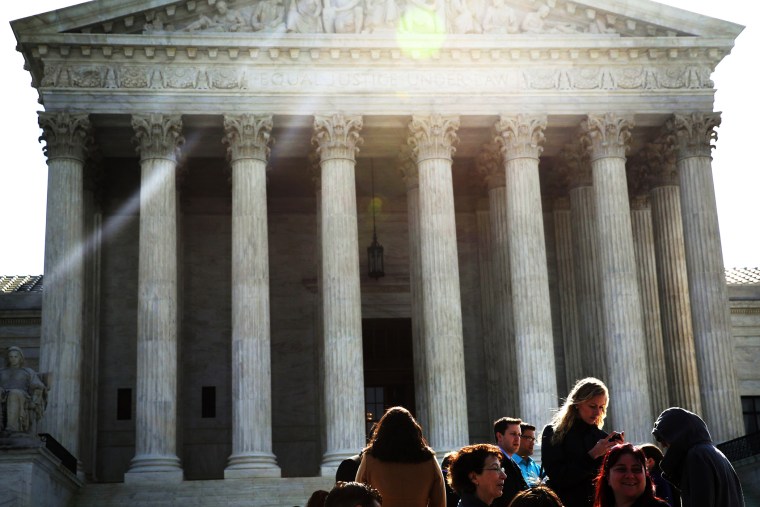Supreme Court justices turned a skeptical eye towards an Ohio law banning knowingly false statements in political campaigns Tuesday with one justice adopting an analogy to the dystopian novel 1984 to describe the law's impact.
"The mere fact that a private individual can chill somebody's speech does not say, well, since a private individual can do it, you know, the ministry of truth can do it," Justice Antonin Scalia told Ohio State Solicitor Eric Murphy. Scalia was adopting an analogy deployed earlier by Michael Carvin, the attorney representing the anti-abortion rights group Susan B. Anthony List, who said "Our constitutional claim here is the ministry of truth has no ability to judge our political speech as falsity." The Ministry of Truth is the part of the totalitarian government in 1984 responsible for state propaganda, ironically named because it produces politically expedient lies.
Experts believe the high court will rule on whether or not Susan B. Anthony List can challenge the law, not on whether the law itself is constitutional, but Scalia wasn't the only justice whose distaste for the Ohio law seeped into an argument that was technically supposed to be about standing. In 2010, the anti-abortion rights group Susan B. Anthony List wanted to put up a billboard attacking Democratic Ohio Rep. Steve Driehaus's support for the Affordable Care Act as a vote for "taxpayer funded abortion." Public funds for abortion have been banned since the 1970s, and President Obama signed an executive order barring the Affordable Care Act from funding abortion. So, Driehaus filed a complaint with the state election commission, which found probable cause to believe the statement was false.
Driehaus lost and the complaint was withdrawn, but since Susan B. Anthony List has every intention of running similar ads against Democrats in the future, the group is arguing the law is an infringement on their First Amendment rights. Civil liberties groups like the ACLU that support abortion rights and worry about the Ohio law's impact on political speech have backed Susan B. Anthony List's argument that they should be allowed to challenge the law. They fear that, should the high court side against the group, future challenges to laws that abridge speech would be harder to mount.
Murphy argued that since there was no pending prosecution, the group shouldn't be allowed to challenge the law yet. Courts are supposed to only take on matters when someone has or is likely to be harmed by a law.
"You're making it sound like the commission hears every political statement out there," Murphy said in response to criticism of the law by Scalia. "But it has to be filed by a person, and only one person filed a complaint against the SBA this last time, and he is in Africa now. So I don't think he'll be filing complaints any time soon."
"He really lost, didn't he," Scalia noted to laughter in the courtroom.
Though some of the Democratic-appointed justices seemed to be more on-the-fence than their conservative counterparts, at least one of them, Justice Stephen Breyer, seemed ready to side with Susan B. Anthony List.
